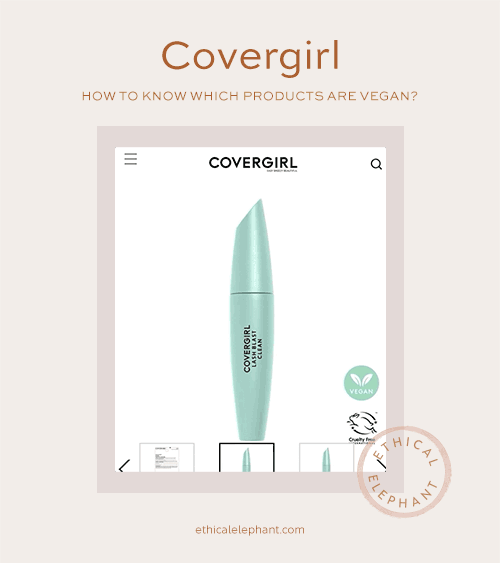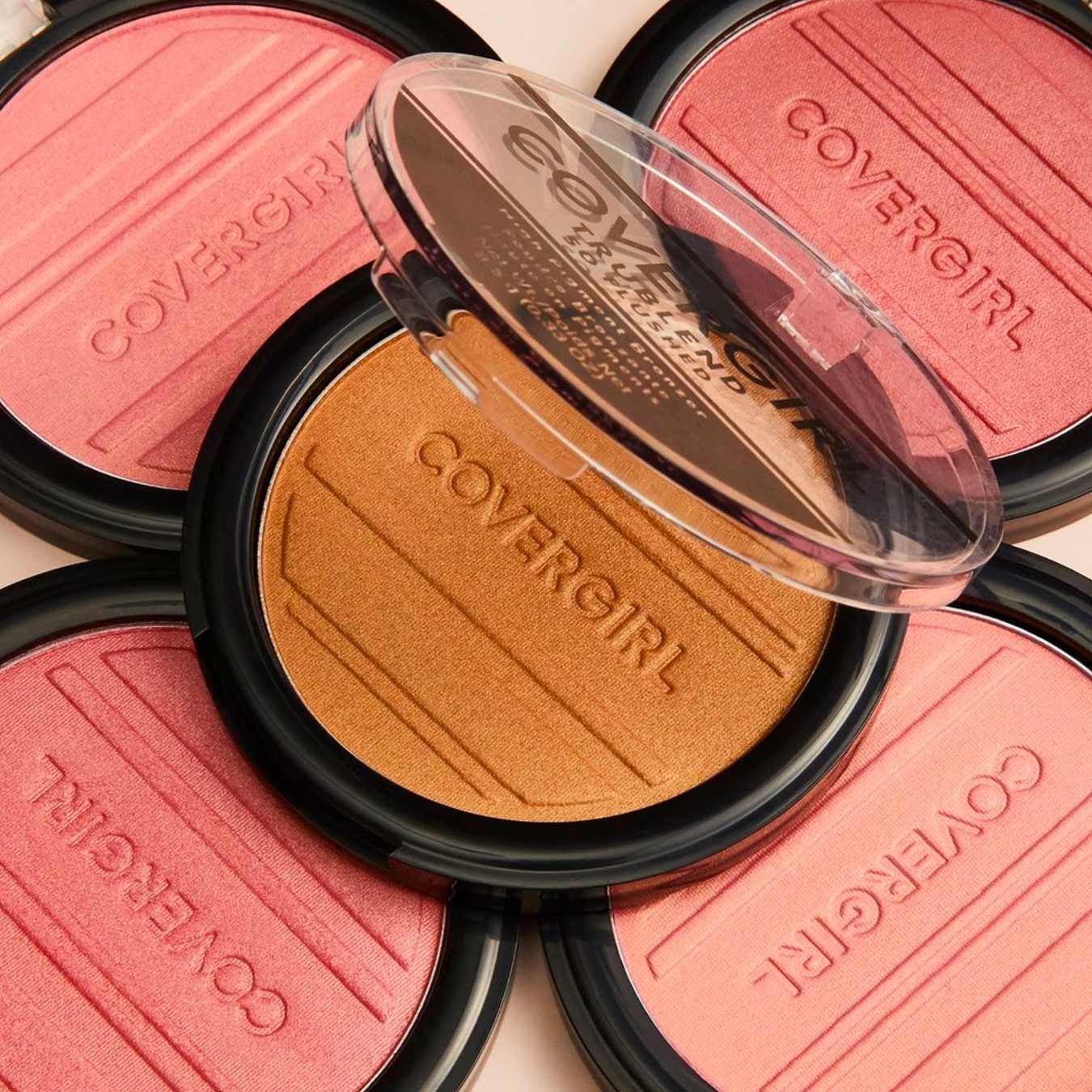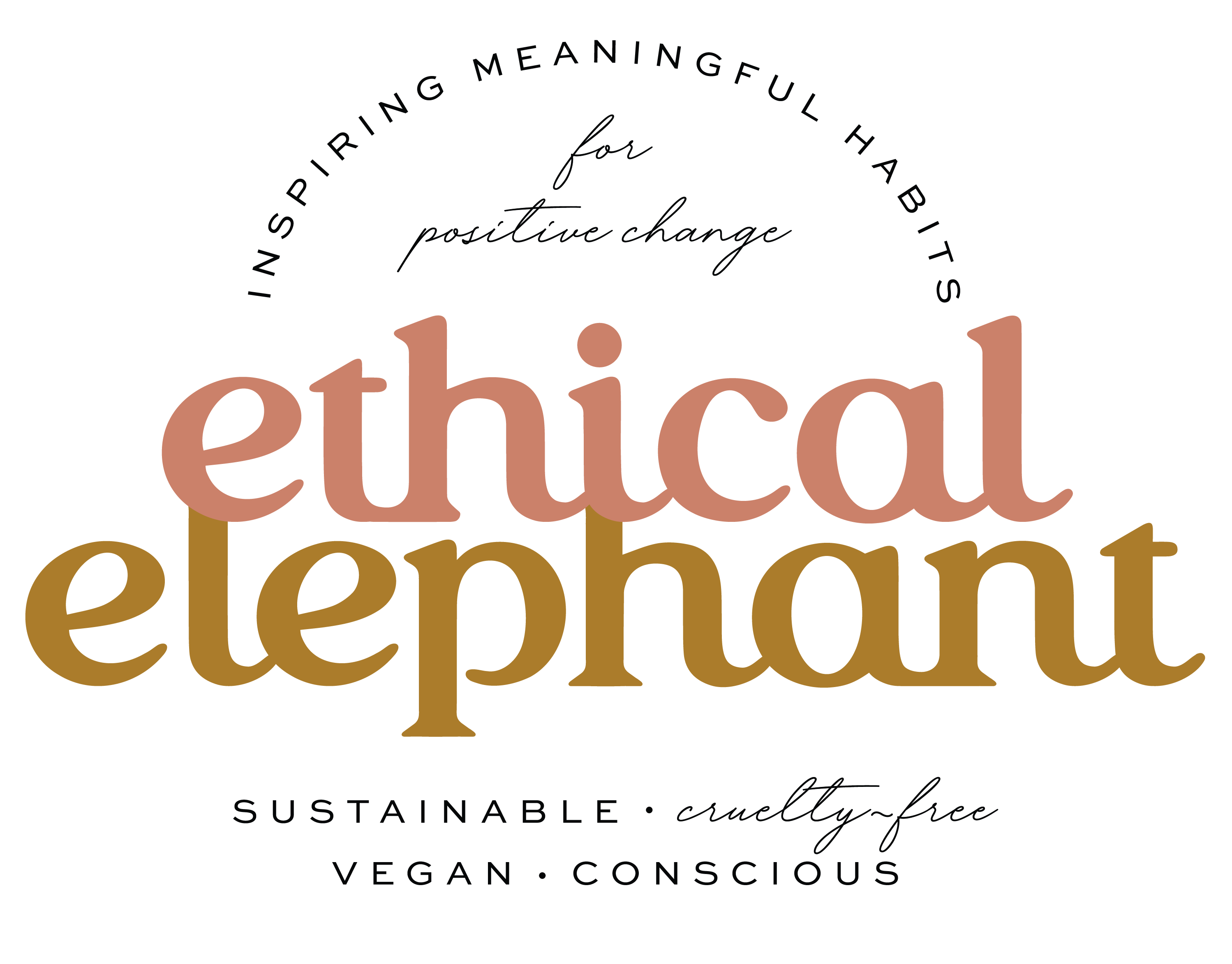This post may contain affiliate links that at no additional cost to you, I may earn a small commission.
Is CoverGirl Cruelty-Free?
🐰 CoverGirl is a *cruelty-free brand. None of CoverGirl’s ingredients or products are tested on animals. CoverGirl has met all the criteria in our Cruelty-Free Checklist and is included in our Cruelty-Free Directory.
Does CoverGirl Test on Animals?
When asking, does CoverGirl test on animals? We must look beyond to ensure none of CoverGirl’s ingredients or suppliers test on animals. And they don’t sell in any country or under conditions that may require animal testing by law.
In our research, we discovered the following:
- ✓ CoverGirl confirmed they do not test their products or ingredients on animals or ask others to test on their behalf.
- ✓ CoverGirl confirmed all their ingredient suppliers do not test on animals
- ✓ CoverGirl confirmed they do not allow or sell their products under conditions where animal testing is required by law
By meeting all of our Cruelty-Free Criteria, CoverGirl is a *cruelty-free brand by our standards.
*CoverGirl is owned by Coty, a corporation that is NOT cruelty-free because they allow some of their other brands to test on animals.
The decision is yours whether you want to support or boycott cruelty-free brands owned by a parent company that is not cruelty-free. There is no ‘right’ or ‘wrong’ answer to this. Do what you’re comfortable with. I just thought it was important to disclose that Coty owns CoverGirl.
What About China’s Animal Testing Laws?
With the current changes to China’s animal testing laws, some cosmetics sold in China can be exempt from animal testing under certain conditions. However, without meeting those conditions, animal testing is still legally required for most cosmetics sold in China in 2023.
CoverGirl has confirmed they do not sell their products in retail stores in mainland China; therefore, they are not required to test on animals.
“COVERGIRL is not sold in China. When it comes to other brands in our portfolio, we understand consumers’ concerns regarding animal testing in China. As a company, we do not test our products on animals and are committed to ending animal testing across our industry. We continue to be involved in dialogue with the Chinese authorities to find alternatives to their current approach. Our strategic partnership with Cruelty Free International will also include working together to advocate for regulatory change to end animal testing globally.”
Is CoverGirl Certified Cruelty-Free?
CoverGirl is certified cruelty-free by Leaping Bunny.
Cruelty-Free Policies 2023
Just because a brand claims it is ‘Cruelty-Free,’ doesn’t always mean that’s the case.
That’s because there is no legal definition for the label ‘Cruelty-Free.’ It can mean different things to different people. But Cruelty-Free is generally used to imply no animal testing. More specifically, the ingredients, formulation, or finished product are not tested on animals at any stage of product development.
At ethical elephant, we always assess a company’s cruelty-free policy using our Cruelty-Free Checklist. This ensures no animal testing was performed by the brand itself, its suppliers, or any third parties.
How We Assess Cruelty-Free Policies
Since 2015, the start of my blog, I’ve been emailing companies asking about their animal testing policies and cruelty-free commitments.
And based on the responses I receive from companies, I’ll research to find any supporting facts needed before concluding whether the brand should be classified as “Cruelty-Free,” “Animal-Tested,” or “Grey Area – Unclear Policies.”
☕️ Every week, I continue to reach out to new brands while trying my best to keep current brands updated. If you found any of my posts or guides helpful, consider Buying Me A Coffee! I would greatly appreciate it! ❤️
What about Vegan?
Just because something is called Cruelty-Free, doesn’t always mean it’s Vegan. And vice versa.
Cruelty-Free only refers to no animal testing, while Vegan means formulated without animal products.
Some brands are Cruelty-Free, but not Vegan.
And some are Vegan, but not Cruelty-Free.
Another important distinction to know is, Vegan in cosmetics can refer to an entire brand is 100% Vegan or a specific product is Vegan.
Is CoverGirl Vegan?
⭐️ CoverGirl is NOT an entirely vegan brand. But CoverGirl offers some vegan options that are free of animal products.
How to know which of CoverGirl’s products are vegan?
All of CoverGirl’s vegan products are clearly marked on their website. See below for an example.

Where to buy CoverGirl? Check out Walmart, Target, Ulta, Shoppers Drug Mart, London Drugs, and on Amazon!
Vegan Policies
Similar to ‘Cruelty-Free,’ there is no standard or legal definition for the label ‘Vegan.’ But Vegan is generally used to mean formulated without animal-derived ingredients or animal by-products.
Some common animal products in cosmetics include carmine, lanolin, snail mucus, beeswax, honey, pearl or silk-derived ingredients, animal-based glycerin, keratin, and squalene.
There are plant-based and synthetic alternatives to animal-derived ingredients. But unless a brand explicitly labels its ingredients or product as Vegan, it’s often difficult to know with certainty whether a product is vegan just by reading the ingredient list.
So it’s best to ask the company and manufacturers to ensure the ingredients they chose were from non-animal sources.
Where are CoverGirl’s products made?
I’ve asked CoverGirl a couple of times where their products are made and the first time, they told me “unfortunately that information is proprietary and we are unable to share.”
And the next time I asked them, they said “A large majority of our products are manufactured in Hunt Valley, Maryland. If there was a specific product you were inquiring about we’d be happy to provide further info.”
Ethical Mica Mining Policy
Mica is a mineral used in cosmetics to add a shimmery effect. But the mining of natural mica has been linked to child labor and human rights violations.
Unless the company discloses its mica mining policy, we have no way of knowing whether its mica is ethically sourced without child or forced labor.
So I asked CoverGirl if their mica is ethically sourced without the use of child labor and they responded by stating,
“Vy, we are more than happy to assist you with your question, we are going to look further into the mica ingredient for you and see what we can find. Coty has been working, as part of the Responsible Mica Initiative, with our suppliers, as well as competitors to address these complex issues with the aim of working conditions in Indian.
Please visit http://www.responsible-mica-initiative.com, to learn more and let your feelings be known directly to the initiative.”
Responsible Palm Oil Sourcing Policy
I asked CoverGirl if any of their products contain palm oil or palm-derived ingredients and if so, are they from certified sustainable sources. And CoverGirl responded saying,
“Recognizing the impact of the palm oil supply chain on human rights, biodiversity, and the environment, we have joined the Roundtable for Sustainable Palm Oil and we have started to purchase palm oil derivatives from RSPO-certified sources. Our ambition is to achieve RSPO Mass Balance certification for 100% of our palm oil and palm kernel oil derivatives used in our factories by the end of 2022. Along with many in our industry, we support efforts to increase transparency and traceability in this supply chain and we will work with all our suppliers in this regard.”
I hope this article helped you to understand CoverGirl’s cruelty-free and vegan status and by choosing cruelty-free together, we can help end animal testing for cosmetics once and for all!
If you found this helpful, consider Buying Me a Coffee. So that I can continue to keep this site running and updated.








0 thoughts on “CoverGirl (Coty)”
This is amazing news! Since we don’t know what products are actually vegan yet, could you do a blog post listing the products that are vegan?